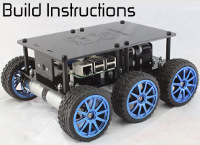Installation issues
- Permission denied, file not found, 404 or similar:
There are a few possible causes of this:
- Out of disk space:
We have occasionally seen this with people who have smaller SD cards, check by using
df
If the Use% column reads 99 or 100% on rootfs you probably need to remove some files to free up space
- Unable to find file / 404:
Most likely the internet connection is down or there are problems with the command, check you are connected to the internet okay with
ping -c4 google.co.uk
If you get errors it is probably the connection, if not check the name is correct.
If there is still a problem it might be an issue with the Linux repositories, try
sudo apt-get update
to update where on the internet the Raspberry Pi looks for packages.
- Unable to write to the given location:
This should not be the case (instructions use the users own folder), but try running using 'sudo'
- E: Unable to locate package ...
Check your internet connection is okay as above, otherwise try
sudo apt-get update
to update where on the internet the Raspberry Pi looks for packages.
- PiBorg logo is missing from the desktop (text is there):
sometimes the desktop refresh is a bit temperamental, try restarting the Raspberry Pi.
Use issues
- My servo motor moves backwards
Use the tuning GUI to set the +1 and -1 limits the other way around.
- My servo motor does not work
Check you are not seeing any errors displayed when calling Init().
You can test this by running the following:
import UltraBorg
UB = UltraBorg.UltraBorg()
UB.Init()
If this shows an error then the most likely problem is that the two 3-pin cables are not connected properly.
Make sure they are both firmly fitted and try another cable if possible.
If it still does not work the most likely cause for this is a wiring problem, double check all the connections as shown on the Getting Started tab.
- Permission denied
It is likely that the user you are currently logged in with does not have permission to use the I²C driver, try running the same command with sudo, e.g.
sudo python
If that resolves the issue then you can add the user to the i2c group with:
sudo adduser username i2c
- _tkinter.TclError: no display name and no $DISPLAY environment variable
You are running a graphical program on a text only terminal (such as SSH), you need to run from a graphical environment.
- I get the error
IOError: [Errno 2] No such file or directory
There are two possible problems, either the I²C is not correctly setup, or the bus number is wrong.
First try these instructions: manually setting up the I²C on a Raspberry Pi.
If that does not help you probably need to change the bus number in UltraBorg.py.
You will find this file in ~/ultraborg.
The line you want to change is line 214 in UltraBorg.py so that it reads:
busNumber = 0
If the line already uses 0 then try 1 instead.
- I get the error
UltraBorg was not found
You should see the boards I²C address if you run the following from Python:
import UltraBorg
UltraBorg.ScanForUltraBorg()
If no boards are found check that the UltraBorg is attached correctly as shown on the Getting Started tab.
If a board is shown then set the I²C address to the shown value before calling Init(), e.g.
import UltraBorg
UB = UltraBorg.UltraBorg()
BB.i2cAddress = 0x44
UB.Init()
- Python says it cannot find the UltraBorg module
make sure you have the UltraBorg.py file in the same folder you are in, e.g.
cd ~/ultraborg
python
If you still have problems you can manually add the correct folder to the Python search path:
import sys
sys.path.append('/home/pi/ultraborg')
import UltraBorg
- I am trying to use Python 3 / WebIOPi, help...
See Python 3 and UltraBorg for more help setting up with Python 3
In the event that you cannot solve your problem, please post
here for further assistance.


